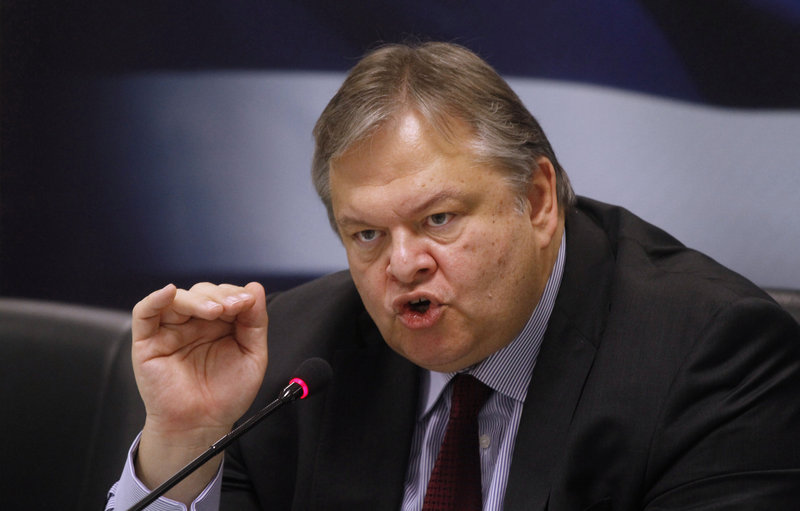BERLIN — Stock markets soared around the world Tuesday amid hopes that Europe is finally finding a way out of its debt crisis. Greece approved an unpopular property tax and German Chancellor Angela Merkel pledged to offer the struggling country “all necessary assistance.”
It’s unclear whether that will be enough to satisfy investors for long. Stocks improved following last week’s turmoil as speculation grew that Greece’s bailout creditors will look to impose bigger losses on Greece’s private bondholders as well as recapitalize Europe’s banks and expand the eurozone’s rescue fund. So far, there’s been no confirmation from Europe’s capitals that such a comprehensive solution is being planned.
Financial markets closely watched a meeting between Merkel and Greek Prime Minister George Papandreou, but neither announced any new measures ahead of their private dinner at Berlin’s chancellery on Tuesday evening.
“Through the euro, we are closely bound together, and the weakness of one affects us all,” Merkel said at a news conference.
Markets responded to Tuesday’s developments with a surge. The Dow rose 146.83 points, or 1.3 percent, to close at 11,190.69. It had been up as many as 325 points earlier. The Dow has added 419 points in the past two days, making up more than half of its 737-point plunge last week.
The Standard & Poor’s 500 index rose 12.43, or 1.1 percent, to 1,175.38. Materials stocks led the S&P higher. Specialty metals company Allegheny Technologies Inc. rose 7.4 percent, the most in the index.
The Nasdaq composite rose 30.14, or 1.2 percent, to 2,546.83.
Small companies rose more than larger ones, a sign that investors were moving money into riskier investments. The Russell 2000 index, a benchmark for small-cap stocks, rose 2.2 percent.
European markets also closed sharply higher. Germany’s DAX rose 5.3 percent, France’s CAC-40 climbed 5.7 percent, and Britain’s FTSE 100 rose 4 percent.
Germany, Europe’s biggest economy, is seen as a key player in resolving the 17-nation eurozone’s debt crisis, but Merkel’s government has repeatedly been accused during the past 18 months of being a reluctant leader of the rescue efforts. Speaking earlier Tuesday alongside her economy minister, Philip Roesler, Merkel reiterated her conviction that there is no quick solution, saying the crisis must be dealt with “step by step.”
The current plan is to have Greece implement painful debt-reduction measures in exchange for rescue loans. Greece relies on funds from last year’s $149 billion package, and European leaders also have agreed on a second bailout, although some details of that remain to be worked out.
“We want a strong Greece within the eurozone, and Germany is prepared to offer all necessary assistance,” Merkel said in Berlin.
Papandreou, in return, pledged to implement the reforms demanded by Greece’s international creditors. Speaking through a translator, he said this is a time “of great sacrifices for the Greek people. Therefore it is of great importance to receive signals of support from our European partners.”
Send questions/comments to the editors.



Success. Please wait for the page to reload. If the page does not reload within 5 seconds, please refresh the page.
Enter your email and password to access comments.
Hi, to comment on stories you must . This profile is in addition to your subscription and website login.
Already have a commenting profile? .
Invalid username/password.
Please check your email to confirm and complete your registration.
Only subscribers are eligible to post comments. Please subscribe or login first for digital access. Here’s why.
Use the form below to reset your password. When you've submitted your account email, we will send an email with a reset code.